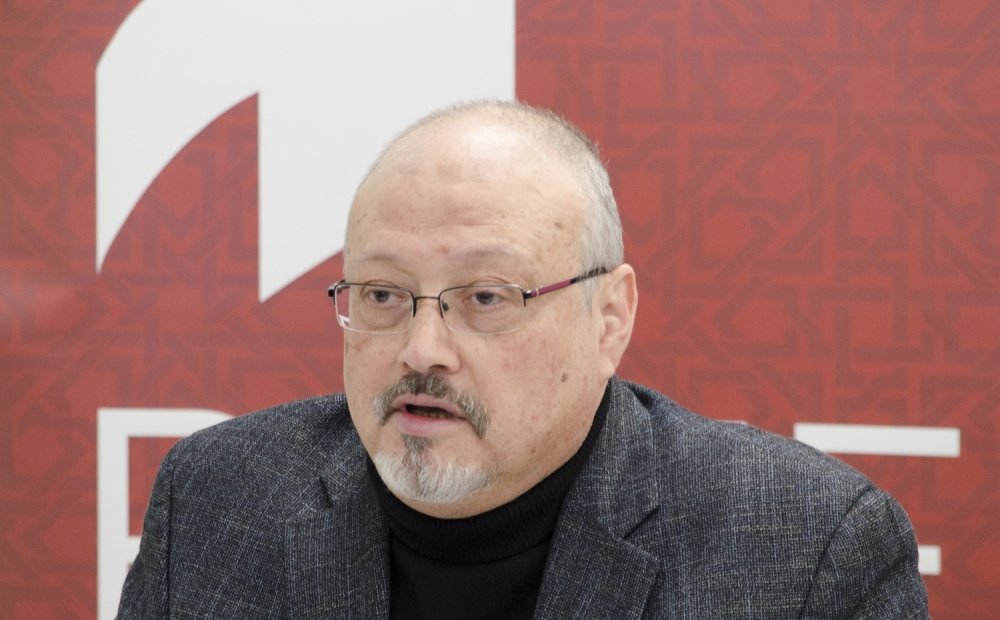Ground Truth Briefing | Jamal Khashoggi and the Future of U.S.-Saudi Relations

The killing of Saudi journalist Jamal Khashoggi plunges the U.S.-Saudi relationship into its greatest crisis since 9/11 – and more than three weeks after the Washington Post columnist was last seen entering the Saudi consulate in Istanbul, there seems to be no clear path toward a resolution.
In this Ground Truth Briefing, four veteran analysts of Saudi Arabia and the region discussed the impact of Saudi Arabia’s killing of Khashoggi and the consequences for its domestic politics, foreign policy, and the future of U.S.-Saudi relations.
Selected Quotes
Jane Harman
“[Mohammed bin Salman] is a magnetic, energetic man. The modernization program for Saudi Arabia is impressive. I think I would say that, and I understand Khashoggi agreed with that. But clearly, there is more to the story than just a modernization program.”
Aaron David Miller
“What happened to Jamal is unspeakable and horrific – at the hands of a regime led by a principal decision-maker who had sent clear signals over the course of the last year that he was interested in modernization and reform. What we missed about the darker and more authoritarian side of Mohammed bin Salman is a question worth exploring in itself.”
Hussein Ibish
“There needs to be a reset with Saudi Arabia, and I think we need to conceptualize it not just in moral terms, but certainly in strategic and practical terms. In other words, the first thing is having to acknowledge that this can’t go unanswered; this can’t simply be accepted as one of those things under the rubric of sovereignty.”
“There have been a series of miscalculations and reckless actions by Saudi Arabia in recent years, many of them linked to Mohammed bin Salman’s inexperience, overzealousness, audacity, et cetera that have created a cognitive dissonance in our partnership with Saudi Arabia that needs to be addressed.”
“If we are seeking to promote stability and preserve the status quo, you can’t do that with destabilizing tactics, tactics that are themselves destabilizing."
David Ottaway
“The sad irony of all this is that Jamal supported all the social reforms that the crown prince has undertaken… They were really on both sides of the same equation regarding where Saudi Arabia should go. The one big difference they had was over the right to debate and criticize and make proposals and suggestions about where Saudi Arabia should go.”
“Jamal has accomplished in death what he tried to accomplish in life, and that was to bring a degree of freedom of speech to Saudi Arabia.”
“We really need to make this alliance work, precisely because we have so many common interests and common objectives. The question on my mind is, can the United States afford to work with a crown prince and king-to-be for the next half-century who has such a reputation, who will never be able to overcome the suspicion that he ordered this killing, and whose record so far in foreign policy is just as reckless as this operation?"
Bruce Riedel
“Saudi foreign policy has gone from one reckless, dangerous mistake to another, and the worst is by far the first: the war in Yemen... Three plus years later, it’s a quagmire. It’s the world’s worst humanitarian catastrophe.”
"Who is in charge here? Obviously, at this point, we do not have dispositive word, but there are an awful lot of clues out there... It is very hard to believe that [the suspects] would carry out such an operation as this on their own.”
“The cover-up is increasingly failing in front of us. It is the responsibility of the Kingdom and of the international community to hold the crown prince accountable for his actions. That may never happen. He is, after all, the crown prince of one of the wealthiest countries in the world. But there is one way the international community, and particularly non-governmental organizations such as the Wilson Center and others, can hold him accountable, and that is to regard him as a pariah for the rest of his life.”
Robin Wright
“The prospect of accountability, I think, is going to be very tricky. It’s one thing to have international consensus and all the circumstantial evidence, but... you have to have that legal evidence to make the connection to crown prince.”
“The judiciary is an arm of one of the world’s most repressive governments. The crown prince as de facto leader has enormous influence on kind of swaying the thinking within the judiciary, which ultimately, as the State Department human rights report notes, the courts, the prosecution, the state security are all required to coordinate their decisions with executive authorities, and it specifies, with the king and the crown prince as arbiters. We may not get to the point where we actually know exactly what happened, even if there is an international consensus.”
“We all have been captivated by this atrocity, but the big question is, and I put this to my colleagues as well, will anyone besides the fifteen or the eighteen [suspects] really pay a price?”
Speakers

Former Washington Post Middle East Correspondent

Introduction

Moderator

Hosted By

Middle East Program
The Wilson Center’s Middle East Program serves as a crucial resource for the policymaking community and beyond, providing analyses and research that helps inform US foreign policymaking, stimulates public debate, and expands knowledge about issues in the wider Middle East and North Africa (MENA) region. Read more
